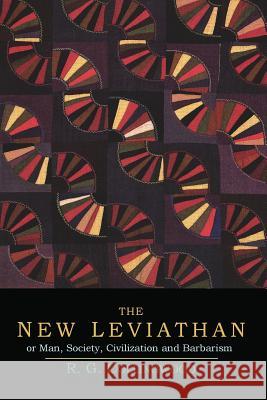The New Leviathan; Or, Man, Society, Civilization and Barbarism » książka
The New Leviathan; Or, Man, Society, Civilization and Barbarism
ISBN-13: 9781614275558 / Angielski / Miękka / 2014 / 398 str.
2014 Reprint of 1942 Edition. Exact facsimile of the original edition, not reproduced with Optical Recognition Software. R. G. Collingwood (1889-1943) was a British philosopher and practicing archaeologist best known for his work in aesthetics and the philosophy of history. "The New Leviathan," originally published in 1942, a few months before the author's death, is the book which R. G. Collingwood chose to write in preference to completing his life's work on the philosophy of history. It was a reaction to the Second World War and the threat which Nazism and Fascism constituted to civilization. The book draws upon many years of work in moral and political philosophy and attempts to establish the multiple and complex connections between the levels of consciousness, society, civilization, and barbarism. Collingwood argues that traditional social contract theory has failed to account for the continuing existence of the non-social community and its relation to the social community in the body politic. He is also critical of the tendency within ethics to confound right and duty.
2014 Reprint of 1942 Edition. Exact facsimile of the original edition, not reproduced with Optical Recognition Software. R. G. Collingwood (1889-1943) was a British philosopher and practicing archaeologist best known for his work in aesthetics and the philosophy of history. "The New Leviathan," originally published in 1942, a few months before the authors death, is the book which R. G. Collingwood chose to write in preference to completing his lifes work on the philosophy of history. It was a reaction to the Second World War and the threat which Nazism and Fascism constituted to civilization. The book draws upon many years of work in moral and political philosophy and attempts to establish the multiple and complex connections between the levels of consciousness, society, civilization, and barbarism. Collingwood argues that traditional social contract theory has failed to account for the continuing existence of the non-social community and its relation to the social community in the body politic. He is also critical of the tendency within ethics to confound right and duty.











